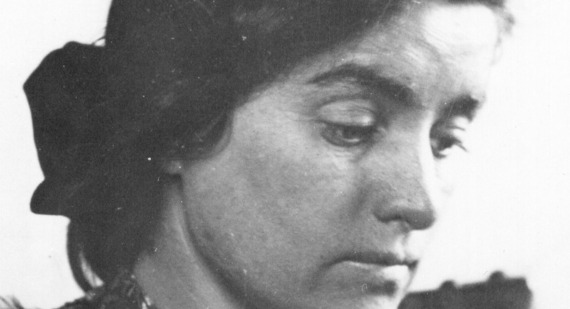-
 June 11, 2025Connie Cronley sat nearby, listening intently as Oklahoma City Mayor David Holt lauded the accomplishments of Kate Barnard on the 150th anniversary of her birth, then officially declared May 23 as Kate Barnard Day.
June 11, 2025Connie Cronley sat nearby, listening intently as Oklahoma City Mayor David Holt lauded the accomplishments of Kate Barnard on the 150th anniversary of her birth, then officially declared May 23 as Kate Barnard Day.
Cronley, author of the book “A Life on Fire: Oklahoma’s Kate Barnard,” beamed as she took in a celebration of Barnard’s life at Fairlawn Cemetery in Oklahoma City, where a dedicated crowd gathered to remember a Catholic woman who fought for social justice and paved a path for others as the first woman elected to a major office.
“It is monumental,” said Cronley, who also spoke at the event. “Here's the mayor, who came out and led the day. It's a wonderful thing that 150 years later we're recognizing Kate.
“We have to make the effort to carry on her story, because it’s such an important story.”
Born to Irish-Catholic parents on May 23, 1875, in Geneva, Neb., Catherine Ann “Kate” Barnard was eventually brought to Oklahoma by her father when she was 12. Her mother had died when Barnard was an infant. Barnard attended, and would later teach, at Saint Joseph parochial school in downtown Oklahoma City.
She devoted her adult life to seeking and obtaining justice for other people. She tackled child labor laws, unemployment, work hours and conditions, compulsory education, prison reform, mental health issues, and business and industry regulations.
Barnard was elected, and served two terms, as Commissioner of Charities and Corrections in 1907, making her the first woman to win a statewide elected office in the United States. Her victory came without any votes from women, since women were not allowed to vote in Oklahoma until 1918.
Most notably, Barnard fought for the rights of Native American children, authored the first official investigative report on the Osage Nation murders, and defended the oil, gas, and timber rights tied to Native Americans’ federal allotments.
“She was devoutly Roman Catholic,” Cronley said. “And fiercely Irish.”
A bronze statue of her is on display on the first floor of the Oklahoma State Capitol and she was inducted in the Oklahoma Women’s Hall of Fame in 1982. Catholic Charities is in the initial stages of installing a statue of Barnard at Sanctuary OKC.
Her work is still seen today through nonprofit organizations like Catholic Charities of the Archdiocese of Oklahoma City and the United Way of Central Oklahoma.
Holt and an Oklahoma City-employee organization, WILLO, held the remembrance ceremony near Barnard’s gravesite at Fairlawn Cemetery. After Holt and Cronley spoke, attendees honored her by laying white flowers on her headstone.
“Kate Barnard is among the most influential people in Oklahoma‘s history, and we’re proud that her legacy was created in OKC,” Holt said. “She was a courageous advocate for so many who otherwise had no champions. To know the story of ‘our good angel Kate’ is to be inspired and amazed, and we hope on this milestone anniversary we can share that story with even more Oklahomans.”
John Helsley is editor of the Sooner Catholic.
Dana Attocknie, managing editor of the Sooner Catholic, contributed to this article.
Photo: (Above) Kate Barnard Oklahoma City Mayor David Holt placed flowers on Kate Barnard’s grave on May 23 at Fairlawn Cemetery in Oklahoma City. Holt officially declared May 23 as Kate Barnard Day, celebrating the 150th anniversary of her birth. Photo Avery Holt/Archdiocese of Oklahoma City.
Oklahoma City Mayor David Holt placed flowers on Kate Barnard’s grave on May 23 at Fairlawn Cemetery in Oklahoma City. Holt officially declared May 23 as Kate Barnard Day, celebrating the 150th anniversary of her birth. Photo Avery Holt/Archdiocese of Oklahoma City.
